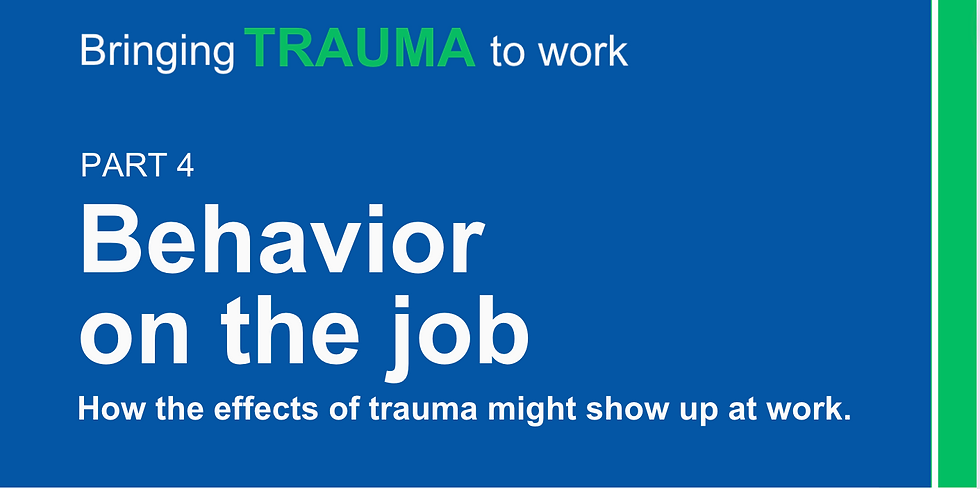How We’re Different: The 3 H’s
- glennakleiman
- Oct 29, 2021
- 3 min read

By Bill Krugler President, JobsWork MKE
Getting a job is one thing. Keeping it is another.
That second part – keeping the job, and even turning it into a sustainable career – is what’s needed to help break the cycle of poverty.
Unfortunately, the traditional workforce development program focuses on the first part – finding the job. But it doesn’t get to the root of the employee’s challenges. So, the employee ends up quitting or getting fired, and the cycle repeats.
At JobsWork MKE, we do get to the root issues. We go deeper and stay longer.
That’s core to our own workforce development model. It’s built around the foundation of 3 H’s – Hope, High Expectations and Holistic Support.
Hope
The people we serve often come to us broken, without hope. They’ve had difficult lives, living in poverty. They’ve been told they’re worthless. They don't believe they can be somebody.
We focus on changing that mindset. We give them an opportunity to see themselves in a different way – that they do have value, that their lives can be different. That, despite what you've been told your whole life, despite the mistakes you’ve made, you can be somebody.
We do that, in part, during the participant’s first step with JobsWork – a 10-day workshop. It's a time of self-discovery when participants begin to recognize their dignity and self-worth, transforming a defeatist mindset into one of optimism.
They get a new start.
High Expectations
This is critical. Too often the war on poverty comes down to taking care of poor people. But they continue to be in poverty. Our society basically says, ‘I'm here to take care of you because I don't think you can take care of yourself.’ It's a self-fulfilling prophecy. ‘I must be dependent on the government so therefore I can't even hold a job.’
At JobsWorks MKE, we say we believe in you – and we’re not setting a low bar for you. Right out of the gate, we tell them we have high expectations, because that’s how they learn accountability and personal responsibility. That’s what employers want their employees to have.
For example, each day of the 10-day workshop starts at 9:30 a.m. sharp. If you’re one minute late, you’re out of that workshop. We encourage you to come back the next time we offer a workshop. But you’re no longer part of this one.
We want motivated people who want to change their lives. That's what they must bring to the table. We can't want this more than they do.
Holistic Support
A lot of workforce development programs become about serving numbers -- how many people they can place in jobs. They’re very transactional. We've come to learn this is a very human business. We’re dealing with people's lives.
That’s why we go much deeper with our participants and stay with them longer. We just don’t help them get a job and then go on to the next person.
First, we work hard to earn our participants’ trust. They’ve got to trust us enough to open up, to share what’s been holding them back. We dig deep to understand all the barriers they’re facing – such as addiction, mental health issues caused by trauma, lack of childcare and transportation. Then we connect them to community partners to help them overcome those barriers.
An example: We assisted one gentleman in getting a job, but he was struggling. We figured out it was because he was in a position that required him to read. It turns out he was reading at a third-grade level. It was a huge burden that he'd been carrying his whole adult life. He had developed complicated “work around” strategies to keep people from knowing. We finally said, ‘Hey, that's okay. Now we know and we can help.’ Literacy Services of Wisconsin is a partner of ours, so we sent this gentleman there for tutoring. It was a huge relief for him.
So, yes, we help our participants find jobs. But it’s about way more than that. It’s about preparing them to keep the job. To grow the job into a career. To achieve economic self-sufficiency – and break the cycle of poverty.




Comments